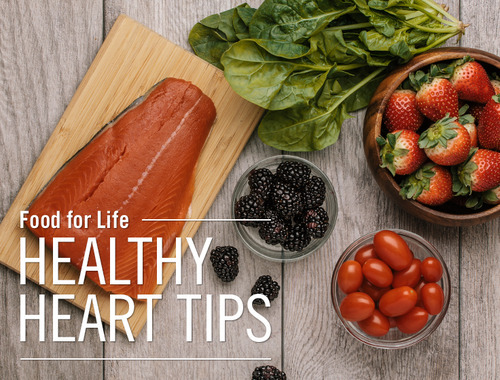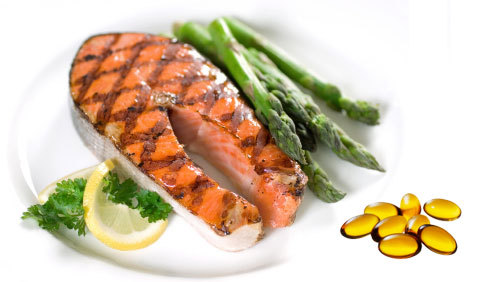
Ten ways to improve your heart health, from our Registered Dietitian/Nutritionist Janice Cox, RDN,LD.
I recently attended
a Mayo Clinic sponsored seminar “Improving Your Heart Health.” Their
cardiologist speakers had great information I want to share with you!
Think of the last
time you went to the gas pump and filled your tank. You watched gallon after
gallon go in until it finally clicked off. Your heart is also a pump, similar
to that gas pump. How many gallons do you think it pumps each day? 50? 500?
It’s actually 2,000 gallons a day! What a huge job for one small organ that
works constantly. Let’s have a heart to heart on hearts:
Statistics
- Heart
disease is the #1 cause of death in men and women. - Since 1984,
more women than men have died from heart disease. - More people
die of heart disease than all forms of cancers.
The good news is
heart disease is 80-90% preventable. So, what can you do NOW to decrease
your risk?
Here are my top ten suggestions to improve your heart
health TODAY!
1. GET UP AND
MOVE! Current recommendations are to get 150 minutes of exercise per week.
That’s 30 minutes, 5 times a week on average. While a great goal, most people
don’t get anywhere near that amount. Good news is that research shows 10
minutes a day can make a difference in reducing elevated cholesterol, blood
pressure and triglycerides.
2. Eat five
servings of fruits and vegetables a day. The wealth of nutrients and fiber this
food group offers is incredibly valuable to our overall health. If you don’t
like fruit, that’s ok, just eat more vegetables! The correct serving is the
size of a tennis ball – so eat at least 5 “tennis balls” a day. Limit juice;
eat the whole fruit to get the fiber.

3. Get
adequate sleep. It’s not a luxury; it’s a necessity. Sleep also helps us manage
our stress. Stress is tied to heart disease by increasing inflammation in the
arteries.
4. Don’t
smoke.
5. Watch your
weight and get your BMI
(body mass index) to 25 or below.
6. Limit your
simple sugars. Did you know 7% of calories in the US are consumed as pop with
sugar?
7. Know your
family medical history.

8. Know your
numbers (blood pressure, triglycerides, cholesterol, blood sugar).
9. Know the
symptoms of a heart attack and take them seriously if you experience them.
According to the American Heart Association, some symptoms of heart attack can
include:
- Chest discomfort. Most heart attacks involve discomfort in the center of the
chest that lasts more than a few minutes, or that goes away and comes back. It
can feel like uncomfortable pressure, squeezing, fullness or pain. - Discomfort in other areas of the upper body. Symptoms can include pain or discomfort in one or both
arms, the back, neck, jaw or stomach. - Shortness of breath with or without chest discomfort.
- Other signs may include breaking out in a cold sweat, nausea or
lightheadedness.
10. Make the
change to eat high fat fish at least twice a week or consider a fish oil
supplement with Omega-3
fatty acids EPA and DHA.





